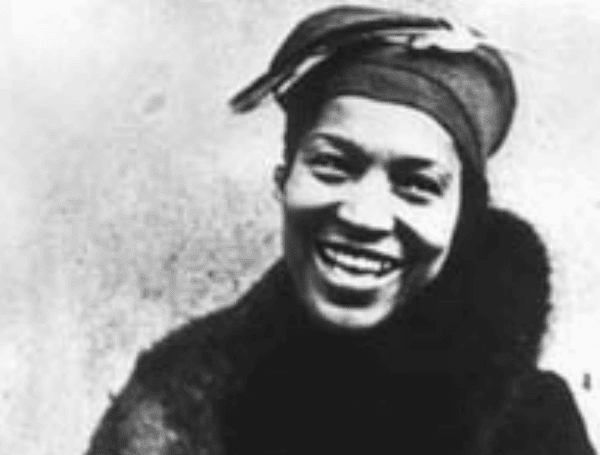Black History Month is a time to reflect on the significant contributions African Americans have made to our nation’s history and culture. Florida, with its unique and complex past, boasts a rich tapestry of Black history, woven with threads of resilience, struggle, and triumph.
Florida’s Black history predates its statehood. In the 16th century, Africans arrived in Florida, some as free explorers with Spanish expeditions, others escaping enslavement in the English colonies to find freedom in Spanish Florida. Fort Mose, established in 1738 near St. Augustine, became the first legally sanctioned free Black settlement in what is now the United States.
READ: Black History Month: A Century Of Recognizing Achievements And Contributions
The Civil War brought emancipation, and during Reconstruction, Black Floridians actively participated in shaping the state’s future. They held public office, established schools and churches, and fought for civil rights. However, this progress was met with resistance, and the era of Jim Crow brought segregation and disenfranchisement.
Despite facing discrimination and oppression, Black Floridians continued to make significant contributions.
They built thriving communities, established businesses, and excelled in various fields. During the Civil Rights Movement, Florida was a battleground for equality. Activists like Harry T. Moore and A. Philip Randolph fought tirelessly for justice and equality.
READ: Bill Filed To Establish Florida Museum Of Black History In St. Johns County
Florida’s Black history is also deeply intertwined with its vibrant cultural and artistic heritage. From the music of Ray Charles and James Brown to the literary works of Zora Neale Hurston, Black artists have enriched the state’s cultural landscape.
Today, Florida’s Black community continues to thrive, making significant contributions in all areas of society.
Places to Explore Florida’s Black History:
- Fort Mose Historic State Park: Discover the history of the first free Black settlement in the U.S.
- Kingsley Plantation: Learn about the lives of enslaved people on a plantation near Jacksonville.
- Bethune-Cookman University: Founded by Mary McLeod Bethune, this historically Black university in Daytona Beach has been a beacon of education and opportunity.
- The African American Research Library and Cultural Center: Located in Fort Lauderdale, this institution houses a wealth of resources on Black history and culture.
- The Zora Neale Hurston National Museum of Fine Arts: Located in Eatonville, this museum celebrates the life and work of the renowned author and anthropologist.
Black History Month is an opportunity to celebrate the achievements and contributions of Black Floridians, acknowledge the struggles they have overcome, and reaffirm our commitment to building a more just and equitable future for all.

Zora Neale Hurston: A Florida Literary Legend Rediscovered
Zora Neale Hurston, a giant of African-American literature and a central figure in the Harlem Renaissance, has deep roots in Florida. Her life and work, though once forgotten, now shine brightly as a testament to her extraordinary talent and enduring legacy.
Born in Alabama, Hurston’s formative years were spent in Eatonville, Florida, one of the first all-black incorporated towns in the United States. This unique environment shaped her perspective and provided rich material for her writing, which often explored themes of Black identity, folklore, and Southern life.
Hurston’s journey was one of perseverance and achievement. She pursued higher education against the odds, graduating from Barnard College and conducting anthropological research at Columbia University. Her travels throughout the South and the Caribbean deepened her understanding of Black culture and folklore, which she masterfully captured in her works.
Hurston’s literary output was prolific and influential. Her most celebrated novel, “Their Eyes Were Watching God,” is a powerful exploration of Black womanhood and self-discovery. Other notable works include “Mules and Men,” a collection of Black folklore, and “Jonah’s Gourd Vine,” her first novel.
Despite her literary success, Hurston faced hardship and obscurity in her later years. She returned to Florida, working various jobs and eventually settling in Fort Pierce. A stroke in 1960 led to her passing, and she was buried in an unmarked grave.
Thankfully, Hurston’s legacy was revived in the 1970s by author Alice Walker, who recognized her genius and ensured her proper recognition. Today, Hurston’s works are celebrated for their cultural significance and literary merit.
Florida honors Hurston’s legacy through annual festivals in Eatonville and Fort Pierce, keeping her spirit alive and inspiring new generations of writers and artists. Her story is a testament to the power of perseverance, the richness of Black culture, and the enduring impact of a truly gifted writer.
Please make a small donation to the Tampa Free Press to help sustain independent journalism. Your contribution enables us to continue delivering high-quality, local, and national news coverage.
Connect with us: Follow the Tampa Free Press on Facebook and Twitter for breaking news and updates.
Sign up: Subscribe to our free newsletter for a curated selection of top stories delivered straight to your inbox.

